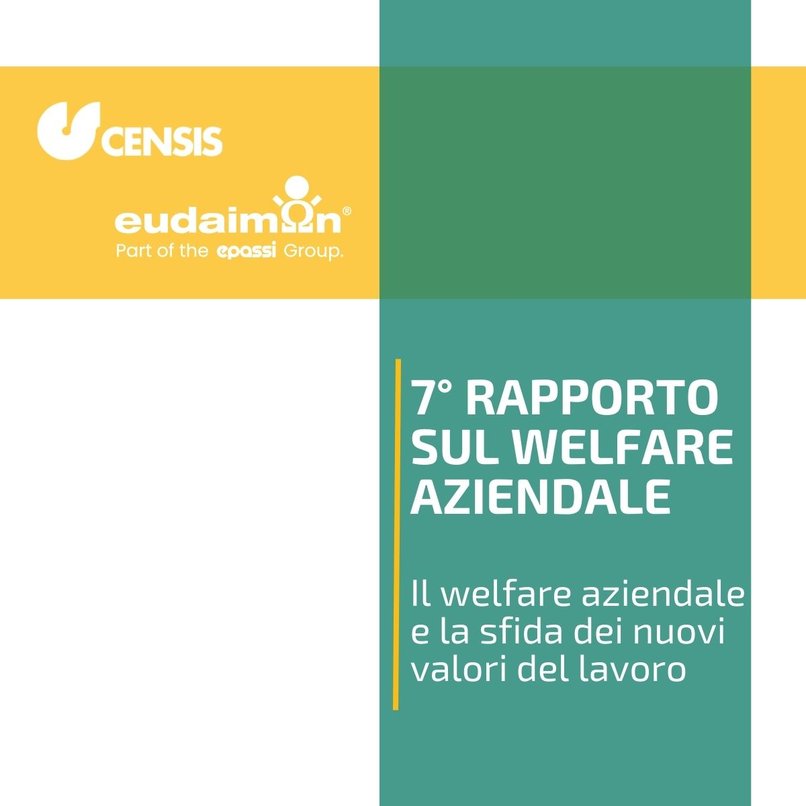In this historical phase, the Italian labor market is marked by an unprecedented paradox: on the one hand the record number of employed people, a trend of creating more stable jobs and a greater presence of women, on the other an increasingly widespread disaffection with work and an increasingly fragile relationship with it.
This year too we will take stock, proposing a summary of the results of the VII Censis-Eudaimon Report 2024. Let's start from the basics…
What is the Censis Report?
The Censis Report is an annual publication, produced by the Social Investment Study Center ( Censis ), an Italian socio-economic research institution founded in 1964.
This report provides a detailed and in-depth analysis of various aspects of Italian society, including topics such as economy, education, work, health, culture and social well-being.
The Censis Report is based on statistical data, surveys, qualitative research and analyzes of socio-economic phenomena conducted by the institute.
The document is therefore considered an authoritative source to understand the social and economic dynamics currently present in Italy and is often used by political decision makers, scholars and sector operators to inform their decisions and policies.
What is the current situation for the world of work in Italy today?
Let us therefore make a brief summary, capable of providing an overall image of the world of Italian work today, to better understand the direction in which corporate welfare is going, to satisfy the expectations of families as much as possible.
● There are more employed people, more stable work and more women hired than in the past
Employment 60.1% (23.1 million workers) with a gap in the employment rate between men and women reduced by 0.6 percentage points.
● However, parenthood penalizes women even more
The gap between the employment rate of women with children and that of men with children in terms of percentage points is equal to -30.7 in Italy, -17.4 in Germany, -14.4 in France, and in Spain at -19 and in Greece at -29.
● Working less is absolutely a priority
The value of free time is priceless: 67.7% of employed people would like to reduce the time dedicated to work in the future. We are less and less inclined to work overtime and almost 28% of employed people have had to give up a job - perhaps better than the current one - because the office was too far from their home and therefore this would have further reduced the time dedicate to yourself.
Finally, 87.3% of employed people maintain that making work the center of their life is a mistake, supporting the undeniable value of work-life balance.
As already mentioned when talking about disaffection at work, taking care of the employee's psychophysical well-being is therefore essential to reduce absenteeism, talent drain and to ensure quality and production consistency in the company.
Here is how - within an increasingly complex but also more aware panorama today - corporate welfare carves out a crucial role for itself.
Corporate welfare and the challenge of new work values
It is good to start by saying that - compared to the past - today, 81.8% of employed people know what corporate welfare is and are aware of the advantages that it could offer them: among workers who already benefit from forms of corporate welfare, the 84.3% would like to further strengthen it, while among those who do not benefit from it, 83.8% would like to see it introduced into their company.
The personalization of welfare is a key point today, as is its usability in an increasingly "smart" version, via APP (such as Euty) or online platforms, by the worker, while the employer expects to be able to take advantage of the welfare also to make your company more attractive with a view to attracting new talent.
The evolution of corporate welfare today
As we were saying, retaining and attracting workers is increasingly becoming a priority for companies, just as it is a priority for workers to be able to manage flexible and shorter working hours.
A new phase of development of corporate welfare is therefore underway in line with the challenges of the moment, a recovery of autonomy and a rediscovery of one's specific identity, moving away from the misleading and belittling role of an effective tool for pursuing others' socio-political goals.
ad hoc support for individual workers and simplified access to services are today already two very concrete solutions to be promoted and strengthened, which herald a new phase of corporate welfare: no longer just a "remedial" activity aimed only at specific categories of workers who are more vulnerable or in difficulty.
Corporate welfare today is implemented with a view to contributing to the psychophysical well-being of all workers, with an active approach, made up of benefits and useful services to resolve the critical issues which make their lives hectic, difficult and burdensome, allowing them at the same time to thus having more free time and more flexible hours.
